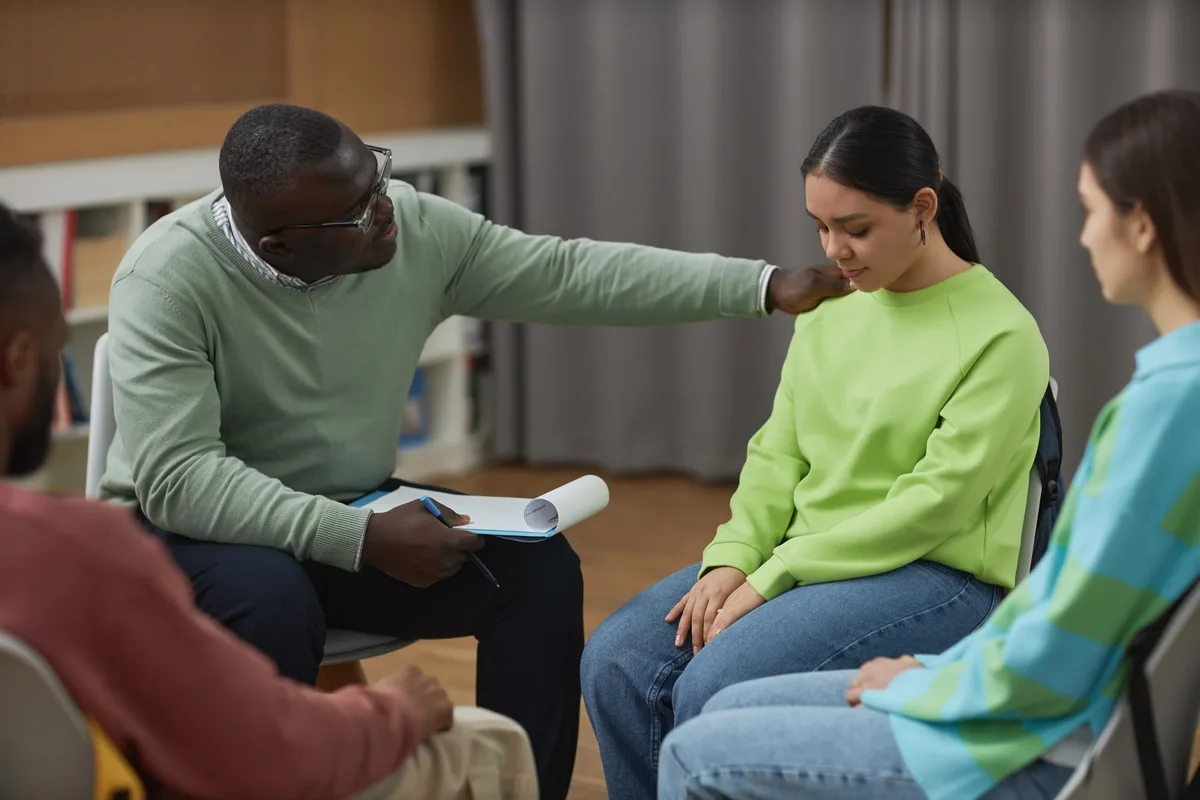24/7 Helpline:
(866) 899-221924/7 Helpline:
(866) 899-2219
Learn more about PTSD Rehab centers in Pitt County

Other Insurance Options

State Farm

Kaiser Permanente

BHS | Behavioral Health Systems

American Behavioral

Health Net

Horizon Healthcare Service

Cigna

AllWell

Sliding scale payment assistance

Carleon

ComPsych

Anthem

Aetna

BlueShield

MHNNet Behavioral Health

UnitedHealth Group

CareFirst

CareSource

Group Health Incorporated

UMR

WeCare Residential Facility
WeCare Residential Facility is a residential treatment facility for children with mental health issu...



































































































































































































































































